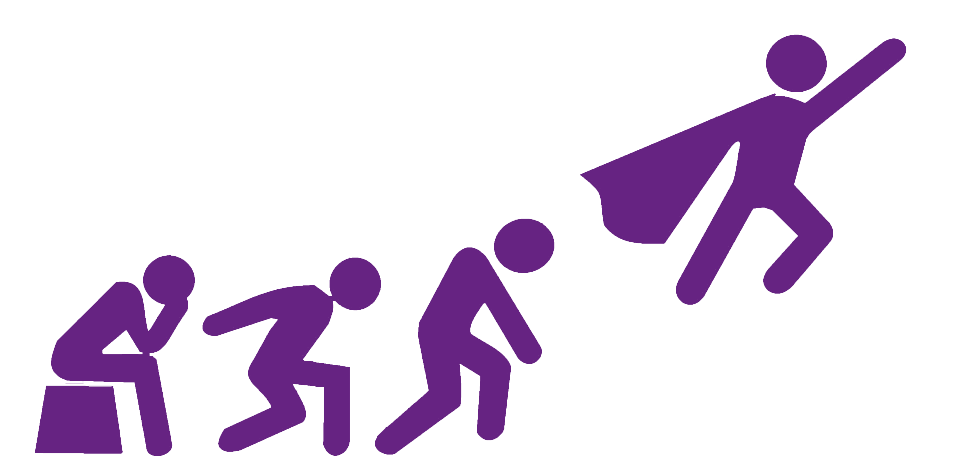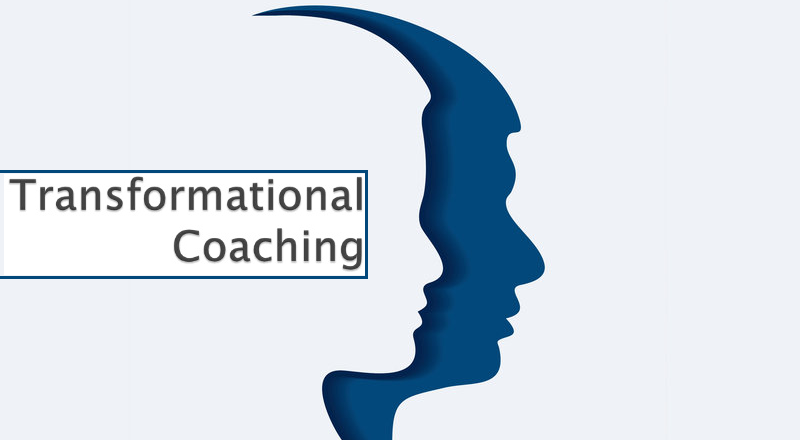This isn’t a question that can be addressed in depth in an article that’s this long. In fact, entire book have already been written on the subject.
We can, however, define the essence of transformative coaching , and what it is different from and connects to other kinds of coaching.
This article’s goal is to explain the essence of transformational coaching, so that at the conclusion of this article you’ll have a clearer concept of:
- How transformative coaching improves the traditional model of coaching
- The foundational assumptions of coaching that transforms
- The type of issues that transformational coaching addresses lends itself to
- What happens when a coach who is transformative does it
- Ten stages to transformational change
- The 5 Animas Stances of Transformative Coaching
- The question is whether transformative coaching is the ideal option for you, if you’re planning to become an instructor
What is transformative coaching?
Transformative coaching – is an individualized kind of coaching that encourages an honest reflection on how someone thinks about themselves, other people in their life, their circumstances and the world around them.
That is, it is a way to increase the understanding from the client’s mental map, or paradigm which is an essential part that they pose to coaching.
Our simple definition is:
” Transformative coaching explores a client’s inner world of beliefs, assumptions, values and expectations in order to create greater possibilities for ways of being in life.”
Transformative coaching is based by assuming that there’s a larger set of mental structures at the helm that are, at the very least responsible for the difficulties that a client faces.
The way the person perceives things affects the way they handle them.
To be precise, however this is not meant to ignore that there is a reality to the circumstance they are in, such as losing work, starting relationships, facing discrimination, battling with health or whatever the issue of life. It is more that along with the reality of the situation, the changes desired by the client can be significantly improved, and perhaps even transformed through a greater understanding of and the loosening of mental maps that the person has.
In this way the goal of transformative coaching is to remove people from notions and beliefs that keep them stuck. It also seeks to develop new possibilities in methods of being, thinking and being.
To apply the analogy of the classic transformational coaching can help fish perceive the waters that they was unaware of swimming in!
What do transformative coaching connect with traditional coaching?
Before we get into the details of the concept of transformative coaching, let’s look at what it is and how it fits into the coaching practice that has developed in the last 30 years.
It’s a tough term to define. For example the tennis coach is quite a different kind of coach than the one we’re talking about here.
What we’re talking about are an approach to humanistic coaching, a type of coaching that came into existence during the latter half during the latter half of the century. It was based on the theories of humanistic theories of management, psychology, and sports psychology.
The Principles of Coaching
Without becoming lost in detail, the core of coaching is is:
- Client-led Discussion topics are decided by the participant not the coach.
- Dialogic It is the dialogue process that includes reflection, questions, and various dialectic methods.
- Client initiated and realized: the change a client would like to see is made through their own actions, rather than being done by them.
- Non-advisory It assumes that the user will come to the most appropriate answer for themselves or that they will try, and they’ll learn on the highest level.
- Change-oriented: it focuses on changing things instead of, say emotional release to cope which is why it generally has established goals or objectives.
- Concentrated on self-actualisation and potential: it assumes that individuals can change and grow to feel happier and be able to realize the full potential of themselves.
The Practice of Coaching
Coaching is a method of trying to help implement these principles in the coaching dialogue.
At the most fundamental level coaches will ask their clients what they expect to accomplish from their coaching process or from a particular meeting, then examine this by asking, reflecting on, clarifying, and challenging taking a decision about what the client planning to do.
In the early days of coaching as a profession, the conversations were primarily focused on changes in the behavior of the client. Particularly, it helped clients to establish clearly defined goals and then move towards them. It was in this period that popular models such as GROW were created.
This emphasis on change in behaviour was most likely an example of professional individualization which was one of the attempts by this newly formed profession to make clear water between itself and various forms of therapy which were more focused upon how to address the “why” of an issue or the root causes and also on emotional catharsis.
At some point though, it became clear that this behaviourally-focused approach had serious limitations.
Focusing solely on the objective often failed to make the client think about the motivation behind their goals at all. Additionally, while investigating beliefs was always an essential aspect in coaching sessions, this was usually conducted in a manner that focused on aligning the beliefs with the needs of achieving the goal, instead of gaining a greater knowledge of these beliefs and the larger impact they had on the person’s life.
In the end this led to coaching becoming more complex, nuanced and human-centric. The transformational coaching method was one result of this evolution.
To better understand this it is beneficial to examine the concept of three stages of coaching and changing.
Three Levels of Coaching and Change
Since the beginning of time the field of coaching has been loosely separated into three distinct kinds, each with its specific focus on change.
All of them adhere to the fundamental principles of coaching outlined above, however they differ in regards to where their focus and the desire to changes are placed.
One thing to note immediately is that these strategies differ in the way they are executed, however they’re not more or less effective. Each one has its place within the coaching industry depending on what the client is seeking.
Behavioural Coaching
In the field of behavioural coaching, the emphasis is almost exclusively on achieving a desired final result or objective.
The coaching process is usually more focused on task, however it might tackle things such as beliefs that are an obstacle to achieving the goals.
This type of coaching is extremely efficient because it is built on the most controllable aspects of a person’s life, like making a decision about what they want, creating an action plan, and then taking the necessary steps. However, it’s likely to work if the client really wants what they claim to want!
This type of coaching is perfect for those who know the goals they wish to reach and want a system to focus, push and accountability.
Developmental Coaching
In coaching for development the emphasis tends to be on improving the level of skills in a particular area of life.
This covers communication, leadership, relationships as well as other areas in which there is an ongoing commitment to that topic.
In contrast to behavioural coaching, which is focused on the short-term, developmental coaching focuses on more broad issues, where clients begin to develop strengths that will have a long time impact.
This type of coaching is best when the client believes they can accomplish more, or get better results by gaining more abilities.
Transformative Coaching
In transformational coaching the emphasis is to help a client to be aware of their more fundamental and oft accepted as normal assumptions that determine the way they view their lives or in a particular situation.
The goal of coaching that is transformative is to bring about a perspective shift or, as the theory of transformative learning, Jack Mezirow, described it, a shift in the person’s frame of reference.
Many people’s life can be not easy to understand. They don’t have a clear vision of their goals and aren’t looking to build a capacity in any aspect of their lives. They’re confronted by an even larger issue of purpose, meaning satisfaction, value and purpose. Additionally, they could be confronted with situations that cause them to think about their own identity – being a parent, retirement or divorced, switching careers, or experiencing a loss such as.
If you’re facing such questions It can be not helpful to rush off for a cause This could be like covering up the flaws with a piece of plaster.
Coaching that transforms is most effective when a coach is in some degree of confusion or for the sake of a less-used word, confusion!
Transformative coaching may also be a focal point when a different type of coaching is faced with issues that demonstrate the absence of coherence between what the client is saying and how they act.

What are the 3 levels of coaching function
If you’re considering training to become coach, you may be thinking about how you could be able to determine if it is a good idea to explore transformative coaching or a different type of coaching.
The best part is you do not need to make a decision.
The three kinds of coaching work together and it’s up to the coach and client to establish a clear understanding of what’s required and adapt to the situation as it appears.
A customer may have to be a clear objective, but , time and time again, they aren’t able to complete the task they’ve committed to. It could be that, when you look into this you realize that there’s an even bigger issue in this instance and it begins to challenge the initial goal. Then the behavioural coaching process enters an era of transformation.
The reverse could be true as well. A comprehensive investigation into a client’s general feelings of being bored with life may lead to developmental or behavioural coaching as they get clearer on what they truly want and the reasons behind it.
What’s clear from the experiences is that a coach who has been trained in behavioural approaches is not likely to have the expertise or experience required to be able to operate at a transformational level, however the coach who transforms will be trained in both developmental and behavioural methods.
Once you have learned how to be an effective coach, you’ll be able to master these levels as well.
How can a coach who is transformative assist their client?
In this article, we looked at the most basic level, how coaches function: establishing outcomes; asking questions and reflection to challenge assumptions; making new conclusions; and then deciding on the next steps.
We also observed that within coaching there are three main levels of change , which are not tightly carried out by three kinds of coaching.
The answer to the question of how transformative coaches work is pretty straightforward. They operate in an exact manner as every other coach who is human.
The difference lies in the concentration and the intention.
If a coach is working in a transformative way, they are paying attunement to the signals that indicate that there is more than just a belief system or something more valuable happening in the background.
Their purpose is to assist the client to explore this issue; to let it out in the open and to critically examine it to allow more space for change. At the very minimum, to allow clients to acknowledge it as a fact they hold certain convictions.
For an example concrete, think of someone looking to find an intimate companion.
In a way A coach may assist the client to meet one person every week. This could be the catalyst for a number of steps that could include joining an online dating website, creating their profile, getting some photographs taken, reaching out to a specific amount of people, and the list goes on.
On a more developmental level coaching may aid the client in developing greater interpersonal skills, become more comfortable asking questions, rather than constantly talking, and show more confidence.
On a more profound level, The coach may assist the client to realize that the pursuit of intimacy is actually a repetitive pattern that the client slips into when they’re bored with their current situation – when life is a bit dull. The coach could help the client realize that this isn’t helpful for them, or for those they meet and ask if it is the right choice.
It’s not that the coach will recommend clients to not establish a relationship with them – the coach is not seeking to influence but the objective is to make sure clients have had a closer examination of their motives and their assumptions, and in this instance the way that repeated patterns can reveal more of a picture than the client generally ignorant of.
This could result in the person reevaluating their previous position and having a moment to consider what they truly want from an interaction and if now is the best time to start.
I like to think of it as the coach is laying out all the moving pieces of the problem that includes all the thoughts, assumptions, wishes as well as values and then placing them out on the table for clients for the client to review. I can imagine the client’s face of awe as they move through the various pieces and murmurs of “Wow! I didn’t know that was even there!”
The fundamental assumptions of transformative coaching
We’ve now seen the benefits of coaching that transforms it’s time to have an in-depth analysis of the theoretical foundations that make it different.
While it is able to adhere to all theories that underlie coaching generally however, it also draws on certain additional assumptions.
The majority of the ideas were developed in the work of Jack Mezirow, whose seminal book, Transformative Dimensions to Adult Learning was released in the year 1991.
In this book, was born a whole area of education referred to by the term transformative learning.
The most fundamental assumptions are:
- We can never fully comprehend the world as it exists. We try our best to comprehend the world, and then we construct sense from the information we have.
- The majority of meaning-making processes are an amalgamation of wider systems that function as ways to get around. This means that most times we operate from patterns of thinking that we’ve borrowed unconsciously from the wider structures we are a member of. Whether it be family, organizations and societies, national states and so on.
- We can liberate us from the assumed assumptions that guide our lives by engaging in some type of critical thinking which is, in essence an attempt to question and understand the assumptions which form the basis of our view of the world.
- This is made possible by dialogue, where the person in question is able to bring about a change from the other by asking provocation, reflection, or questions.
- Finally no matter what is factual or not, what really matters is the experience of the person.
Although Mezirow did not conceptualize this using the coaching lens It certainly is a perfect translation!
Mezirow continues to discuss what he calls the 10 stages of transformative learning which we also believe can be directly applied to coaching. They can, with a little creative thinking could be linked to the three fundamental kinds of coaching.

10 Stages of Transformative Learning
- An individual encounters a disorienting dilemma
- They undergo a procedure of self-examination
- They critically examine their assumptions
- They recognize that other people have experienced similar transformations
- They consider possibilities for new roles or take actions
- They create a plan to implement the plan.
- They are looking to acquire new understanding and abilities to carry out the plan
- You can test the plan anywhere in the world
- They gain self-confidence and competence in their new roles.
- They begin to incorporate the new perspective into themselves and their lives
Although we don’t have enough time to go into the depth here but it’s worth noting that the first five steps concentrate on the transformative approach. the steps 6-8 follow a behavioral approach, and steps 9 and 10 take a more development-oriented approach. We can see how the three styles of coaching are able to be integrated within a transformative umbrella.
The Animas 5 Stances of Transformative Coaching
At Animas, We have simplified transformative coaching down to five core stances or principles, that serve as the foundation of the work we carry out.
In essence, they are:
The Phenomenological Stance
It is essentially saying that the thing that has the greatest credibility and significance in the coaching process is the individual’s experience of the challenge. It is irrelevant how we perceive it or the truth if the client doesn’t feel in this manner. A large part of the job of a coach is to bring the client’s perspective and encouraging them to think about the reality of it.
The Humanistic Stance
This approach places human development potential, personal agency and the ability to grow as the primary characteristics inherent to human beings. This lets the coach take the position that is one of unwavering positive regard towards the person that is before them and facilitate respect, non-judgment and inquiry. In addition, it presumes that the person in front of them has the capacity and capability to make a impact in their lives.
The Holistic & Systemic Stance
While balancing the previous approach with the systemic one, it acknowledges that we all are part of larger systems that influence and shape us and are often taken for granted, but which provide a profound set of values that we have taken on and apply to our lives. While celebrating the individual, transformational coaching focuses on how these larger forces are working as well as how the individual can be more aware of them.
The Psychological Stance
It is right to say that transformational work is psychological as it is centered on bringing about internal changes instead of only external shifts. In our method we will employ psychological strategies that allow for a loosening and reassessment of the existing habits rather than just focusing on the existing strengths or strategies of self-management.
The Integrative Stance
The fifth stance is a wraparound of the other four stances and provides an integrated perspective to the task. This is basically investigating multiple methods to work from different thought systems, however, they are all connected to the common theory of transformational change. This is the way to allow us to instruct frequently contradictory psychological frameworks, like cognitive behavioral methods and psychodynamically influenced ones like transactional analysis.
Together , these five stances create an intellectual framework that coaches are competent to work within.
It’s not something you can master quickly and the path towards becoming a transformative coach involves gradually developing skills and gradually increasing your knowledge throughout the entire spectrum of work.
Do you see a difference in “transformative” and “transformational” coaching?
In a certain sense, the terms “transformational” and “transformative” are often used interchangeably.
Transformational is often employed more as an aspirational term but it is not necessarily referring to an actual theoretical basis.
The danger is that the word “transformational” is essentially meaningless and can be applied to almost anything without deriving a specific conceptual or practical stance.
We have chosen to use the term transformative approach to coaching in order to better define its roots in transformative learning as well as the psychology and philosophy from which it is derived from.
However, we have also observed the different meanings in the terms “transformational” and “transformative” in the field of learning theory, and it appears it’s a question of semantics that people that other fields wrestle with! We believe that we want to make it sure that the term “transformative” is not just an aspirational description, but instead it refers to a way of thinking about how we understand the world using frames of reference that could be limiting and rigid but always subject to change in the event of a question.
Do you think that transformative coaching is the right choice for you, if you’re planning to learn how to coach?
The transformative coaching method isn’t suitable for everyone, and it’s important to determine if it’s appropriate for you.
Who shouldn’t train as a transformative coach?
Aspiring therapists
Coaching that transforms is not suitable for those who want to conduct therapy. There is a danger with transformative coaching. It could appear as it’s a shortcut to becoming the Therapist. However, it’s not.
Therapy is typically used to address more difficult problems, which are usually resulted from traumas that are more severe and usually accompanied by a large amount of extreme emotions. While emotions are an integral element of coaching – we’re human at heart it is not uncommon to see an important distinction in the type and intensity of the emotions which is associated with therapy problems.
It is ethically essential that coaches deal with the issues of coaching, not therapeutic issues.
Manager as coach
If you’re looking to improve your coaching abilities that will help your team members to perform better at work , then it is likely that transformative coaching is not for you. You may enjoy the course and feel that you are enjoying the process, however it’s probably not the best type coach for the team you work with. When you’re the boss, then you’re revealing their deepest convictions. It’s not always appropriate, or even needed.
You like to have all the answers
In the end, if you’re someone who is obsessed with having everything (and perhaps there’s a chance that you have!) the transformative coaching approach is going to make you feel frustrated.
Transformative coaching is founded upon “not knowing”, not “knowing”.
It’s a place that is a place of inquiry and curiosity that allows for a gentle unraveling of ideas and beliefs and an emergence process that offers a myriad of possibilities, a process of discovery.
Who should train as a transformative coach?
If you’re looking to work with individuals at a profound stage of transformation and you are fascinated by the person’s personal path to meaning-making life, then transformational coaching is the right choice for you.
The associate coach
More often, coaching is offered by large corporations who assign work to a massive group of coaches who are freelance. Companies like BetterUp as well as CoachHub.
Transformative coaching could be an ideal fit for clients of these organizations because you’ll typically coach them with no any agenda, and thus adopting a more humane approach to coaching.
Internal coach
It’s also a great choice for those wanting to be internal coaches within companies. For clarity I’m not talking about coaching your team members but instead being a coach for certain parts of the company with no ties to the results they achieve.
A life coach
Transformative coaching is the ideal choice for life coaches that help clients navigate through the challenges and uncertainty of life. Life coaching assists clients across all aspects of their lives by using the inquiry process that I have described earlier and there is no doubt that life coaching is benefited by using a transformative lens.
The coach-therapist/coach-consultant
Additionally, this kind of coaching is ideal for consultants and therapists who work with clients for lengthy periods of time and are seeking to include a coaching element into their job. The depth and scalarity of transformational coaching is a great complement to the methods of working that are already in place.
In general the term transformative coaching applies to anyone who is looking coaches at a higher degree of change, but who would like to be able to transition between three coaching approaches that are developmental, behavioural, and transformative.







